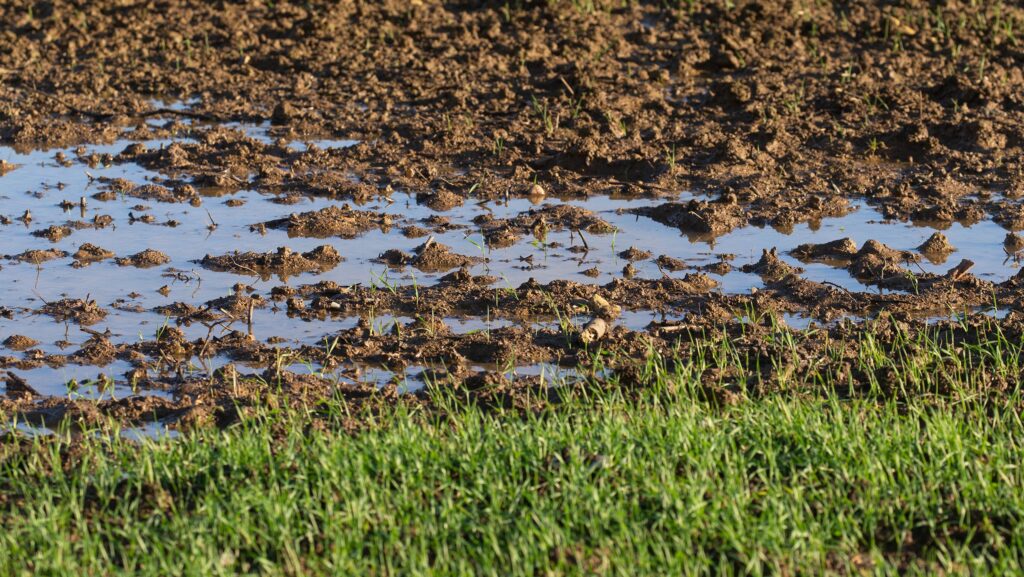Harvest 24: ‘It’s been a scarily tough season’
 © Tim Scrivener
© Tim Scrivener It’s been a season-long challenge for Lincolnshire arable farmer Colin Chappell.
He has described this year’s harvest as “horrendous and extremely tough”.
His winter wheat harvest was reduced to just 4ha, of the 120ha scheduled to be planted last autumn, as a result of the relentless heavy rain putting a stop to plans.
See also: Worst harvest for nearly 40 years at Northumberland farm
Just 35ha of wheat was established, most of which was then completely washed out by the winter floods.
“I’ve not seen weather as bad as this during my time farming here,” says Colin.
“We had a no harvest year in 1948, when my grandfather was farming, but that’s it.”
Come the second week of April, 85% of the 485ha farm had zero crops in the ground.
For many growers, 10 April is getting to the cut-off for establishing crops.
However, for Colin, this was the point at which he could just consider getting started.
“Believe me, it has been scarily tough, especially when you’ve got a milling wheat contract that says you’ve must deliver 350t of wheat and you’ve only got 40t.
“It’s been mentally and financially draining. You question what you’re doing and why you’re doing it.
“We just don’t know if we have enough money to pay the bills – but that’s just reality.”
After the difficulties establishing winter crops and with a contract still to fill, 69ha of spring milling wheat was planted on the cusp of May.
“Crops are, thankfully, looking promising. It’s lower yielding at about 6-7t/ha rather than the 12t/ha we can hit with winter wheat, but at least it’s something.
“We should be harvesting the crop in three weeks’ time,” says Colin.
Environment v food
The financial toll comes at a time when many farmers are signing up their entire farms to environmental schemes as part of the Sustainable Farming Incentive (SFI) and other biodiversity measures.
“There are farms putting hundreds of hectares into these schemes,” says Colin.
“Morally, as a farmer and food producer, I feel a compulsion to produce food.
“I don’t want a knee-jerk reaction to put the whole farm into these schemes, but it is certainly looking like the easier option.”
With a son and daughter who both want to follow their father’s footsteps into the world of agriculture, Colin remains positive for the future.
“I have a son who is now 17 and wants to carry on the farm.
“If I sign the farm up to a wildlife scheme, how am I meant to train him up and teach him the ways to produce food?
“The contracted farm we manage has now taken on 40ha of new land, which comes with a brand new grain store.
“So I’m focusing on the positives and trying to think ahead.
“We also have two SFI schemes and a Countryside Stewardship scheme.”
Better-looking barley
Spring barley crops are “looking lovely”, with one field achieving 8t/ha, which was sold at £190/t for feed.
However, Colin points out that this was, in fact, the third crop to be planted in this field this season.
Oilseed rape failed, winter barley was flooded, and the spring barley finally came to yield.
“By the time we take into account all the other input costs of the failed crops, the gross margin is zero.
“But so far this year we have not had to dry a single crop and they have combined well.”
Next year, Colin intends to plant an early crop of forage winter barley destined for whole crop for a local anaerobic digestion plant.
This should also provide some cultural blackgrass control by switching up drill dates.
“Blackgrass learns how you farm and evolves to match this. If you’re late planting, blackgrass will be late emerging.
“Now we’re moving to an early planting and walking the problem off the farm.”
He has 80ha of fallow cover crops that will be planted to winter wheat, with soil hopefully restructured and in good stead for the following crop.

